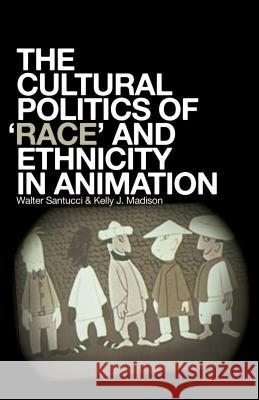The Cultural Politics of Race and Ethnicity in Animation » książka
The Cultural Politics of Race and Ethnicity in Animation
ISBN-13: 9781441127549 / Angielski / Miękka / 2017 / 208 str.
The Cultural Politics of Race and Ethnicity in Animation
ISBN-13: 9781441127549 / Angielski / Miękka / 2017 / 208 str.
(netto: 89,38 VAT: 5%)
Najniższa cena z 30 dni: 90,63 zł
ok. 22 dni roboczych.
Darmowa dostawa!
While cartoons are generally regarded as harmless and fun cinematic diversions, they, like all art forms, have generated controversy. The authors discuss history of controversy over racist content in animation, and the social and political climates that foster such depictions. They also consider the impact of anti-racist political resistance on racial/ethnic stereotyping in animation, and the evolution of images over time.
Though many films are discussed, the authors focus on the 1940s and 1970s, as both periods produced cartoons that were noteworthy in the political struggle over racist imagery. For example, 1943's Coal Black and de Sebben Dwarves is a film significant not only for the extreme controversy stirred by its content, but also for the fact that its director had set out to make a film celebrating African American culture. Conversely, the 1970s saw Bill Cosby's "Fat Albert "television series become the first major American animated entity where content was created and controlled by an African American. The book concludes with a dialogue on whether banning purportedly racist animations was a good or bad idea, whether the portrayal of non-whites in animated films has improved over the years, and whether racist images persist in new forms."











